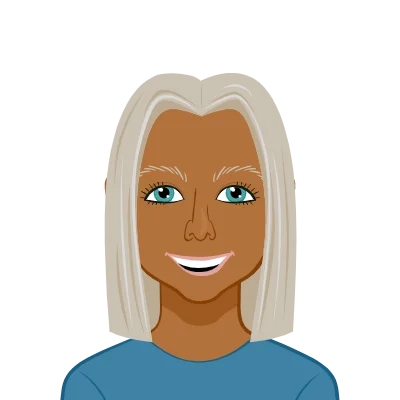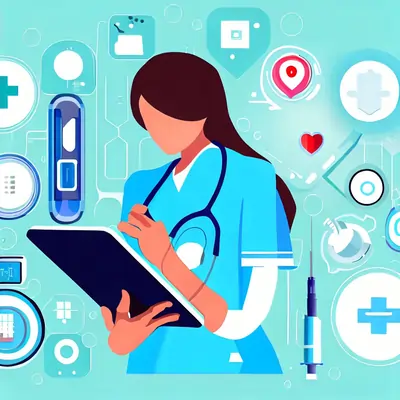Digital Tools Every Nurse Should Be Familiar With

- Electronic Health Records (EHRs): Electronic Health Records, often abbreviated as EHRs, represent a monumental shift in how patient information is managed in the healthcare sector. These digital repositories store comprehensive patient data, including medical history, diagnoses, medications, lab results, and treatment plans. Here's an in-depth look:
- Streamlining Patient Data Management: EHRs have revolutionized the way healthcare providers access and update patient information. They enable nurses and clinicians to retrieve patient records swiftly, reducing the time spent searching for physical files, which can be crucial in emergencies.
- Reducing Errors: EHRs promote accuracy by minimizing the risk of illegible handwriting, lost or misplaced files, and transcription errors. This is pivotal in patient safety, as errors can lead to incorrect treatments or medications.
- Improving Patient Care: Access to up-to-date patient information allows healthcare teams to make more informed decisions, leading to better patient care and outcomes. It also enhances coordination among healthcare providers, ensuring that all involved parties are on the same page regarding the patient's condition and treatment plan.
- Nursing Assignments: For nursing students, understanding EHRs is not just about using them in clinical practice but also analyzing their impact on healthcare delivery. Assignments can involve discussing the benefits and challenges of EHR adoption, exploring their role in care continuity, and examining case studies that showcase EHRs' influence on patient care.
- Telehealth Platforms: The emergence of telehealth platforms has been a game-changer in healthcare delivery, and nurses play a pivotal role in this digital transformation:
- Remote Patient Care: Nurses can use telehealth platforms to provide essential care services to patients who are unable to visit healthcare facilities physically. This includes monitoring vital signs, conducting virtual consultations, and offering medical advice.
- Benefits: Telehealth offers benefits such as improved access to care, reduced travel time and costs for patients, and the potential to reach underserved populations. These platforms can also play a critical role in disaster response and management.
- Challenges: Nursing students can explore the challenges associated with telehealth, such as ensuring patient privacy and security, addressing technological disparities among patients, and adapting communication skills to a virtual environment.
- Mobile Apps for Nursing: Mobile applications designed specifically for nurses offer a wealth of tools and resources that can enhance their clinical practice:
- Drug Calculations: Apps can assist nurses in calculating medication dosages accurately, reducing the risk of medication errors.
- Clinical Decision Support: These apps provide nurses with quick access to evidence-based guidelines and information, aiding in making informed clinical decisions.
- Reference Materials: Mobile apps often include reference materials like drug databases, medical dictionaries, and anatomy atlases, enabling nurses to find information rapidly at the point of care.
- Assignments: Nursing students can evaluate and recommend mobile apps that align with specific nursing specialities or clinical scenarios. They can explore how these apps can enhance nursing practice and improve patient care.
- Nursing Informatics: Nursing informatics is the bridge between nursing science and information technology. It encompasses various aspects:
- Data Management: Nursing informatics involves managing and organizing vast amounts of healthcare data, ensuring its accuracy and accessibility.
- Knowledge Dissemination: It focuses on the effective communication of data, information, and knowledge within the healthcare team to support decision-making.
- Impact on Nursing Practice: Nursing informatics enhances the quality of care by providing nurses with the tools to access and analyze data, track patient outcomes, and improve workflow efficiency.
- Assignments: Nursing students can delve into the world of nursing informatics through assignments that explore its principles, significance in healthcare, and its role in improving patient care and safety.
- Health Information Exchange (HIE): Health Information Exchanges facilitate the secure sharing of patient information across different healthcare organizations. Nurses are instrumental in ensuring the success of HIE initiatives:
- Benefits: HIEs enhance care coordination, reduce duplicate tests and procedures, and improve patient outcomes by providing healthcare providers with a comprehensive view of a patient's medical history.
- Challenges: Nursing students can investigate the challenges associated with HIE, including data privacy and security concerns, interoperability issues, and the need for standardized data formats.
- Ethical Considerations: Assignments can delve into the ethical considerations surrounding HIE, particularly in terms of patient consent, data security, and confidentiality.
- Simulation Software: Simulation software offers a safe and controlled environment for nurses and nursing students to practice and refine their clinical skills:
- Clinical Skills Development: These tools allow nursing students to practice various procedures, from inserting IV lines to responding to emergencies, in a risk-free setting.
- Critical Thinking Enhancement: Simulation scenarios can be designed to challenge students' critical thinking and clinical reasoning abilities, preparing them for real-world patient care.
- Evaluation and Comparison: Assignments can involve evaluating different simulation software platforms, discussing their strengths and weaknesses, and proposing improvements or adaptations to suit specific educational objectives.
- Online Resources and Learning Management Systems (LMS): In today's digital age, nursing students have access to an abundance of online resources and Learning Management Systems that can significantly enhance their educational experience:
- Access to Diverse Learning Materials: Online resources and LMS platforms provide nursing students with a wide array of learning materials, including e-books, scholarly articles, video lectures, interactive simulations, and practice quizzes. This extensive range of resources caters to various learning styles and preferences.
- Flexible Learning: These platforms offer flexibility in terms of when and where students can access educational content. This is particularly valuable for nursing students who often juggle busy schedules, clinical rotations, and coursework.
- Supplementary Materials: Nursing students can use online resources to supplement their traditional classroom learning. For instance, they can watch video demonstrations of medical procedures, access the latest research articles, or engage in virtual patient case studies.
- Self-Assessment and Feedback: Many LMS platforms include self-assessment tools and quizzes that allow students to gauge their understanding of course material. Instant feedback helps them identify areas where they need to focus more attention.
- Collaborative Learning: Some LMS platforms facilitate collaboration among students and instructors through discussion forums, group projects, and peer-to-peer interactions, promoting a sense of community in online learning.
- Assignments and Projects: Assignments related to online resources and LMS can focus on how students effectively navigate and utilize these platforms. They can discuss strategies for efficient information retrieval, time management, and the incorporation of multimedia resources into research papers and presentations.
- Patient Monitoring Devices: Patient monitoring devices represent another significant aspect of nursing in the digital age, and nurses need to be proficient in using these devices to provide high-quality care:
- Diverse Range of Devices: Modern nursing involves the use of various patient monitoring devices, including wearable technology (e.g., smart watches), remote sensors (e.g., home-based blood pressure monitors), and bedside monitors in healthcare facilities. These devices continuously track vital signs, such as heart rate, blood pressure, and oxygen levels.
- Data Interpretation: Nurses must be capable of interpreting the data generated by these devices accurately. They need to recognize normal and abnormal patterns and take appropriate actions based on the information received. This includes adjusting medications, alerting physicians to critical changes, or providing immediate interventions in emergencies.
- Comprehensive Patient Care: Patient monitoring devices contribute to comprehensive patient care by enabling healthcare providers to track patient progress, detect early warning signs of deterioration, and make timely interventions. This proactive approach can lead to improved patient outcomes and reduced hospital readmissions.
- Assignments Exploring Device Integration: Assignments can explore the integration of patient monitoring devices into healthcare settings. For instance, students can research and discuss how wearable devices are being used in chronic disease management or how remote sensors are aiding in telehealth initiatives.
- Ethical Considerations: Ethical considerations are also relevant when discussing patient monitoring devices. Assignments can delve into topics like patient consent for data collection, data privacy, and the potential for device-related errors.
In today's fast-paced healthcare environment, nurses must adapt to the ever-evolving digital landscape. As technology continues to revolutionize the field of healthcare, nurses need to stay updated with the latest digital tools and resources. This blog post will explore the digital tools every nurse should be familiar with, focusing on how these tools relate to the subtopic of "Nursing in a Digital World." Additionally, we'll discuss how the student can effectively utilize these tools to complete their nursing assignment to excel in their studies.

Incorporating these aspects into your nursing assignments will not only deepen students' understanding of nursing in a digital world but also equip them with valuable skills and knowledge for their future nursing careers. For additional help with their nursing assignments and in-depth insights into nursing topics, students can seek online nursing assignment help websites for urgent help.
Leveraging online resources and LMS not only enhances students' understanding of nursing concepts but also equips them with valuable digital literacy skills, which are increasingly important in today's healthcare landscape.
Conclusion
Nursing in a digital world demands that nurses and nursing students stay informed and proficient in utilizing digital tools and technologies. These tools not only enhance patient care but also contribute to the efficiency and effectiveness of nursing practice. By incorporating these digital tools into their assignments, nursing students can better prepare themselves for a successful career in the ever-evolving healthcare landscape. As you explore the world of nursing in a digital age, utilize a reliable source for guidance and support in completing assignments related to this exciting and dynamic field. We offer expert assistance to help you excel in your studies and become a proficient and tech-savvy nurse in the digital era.